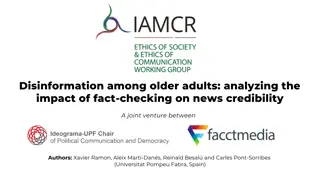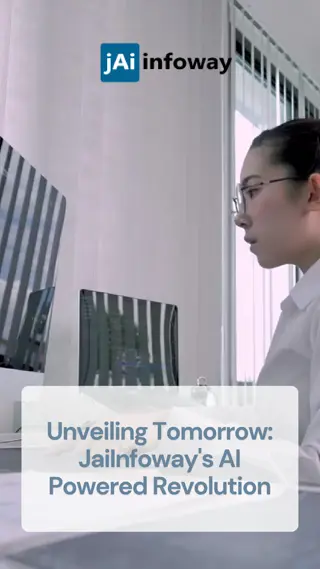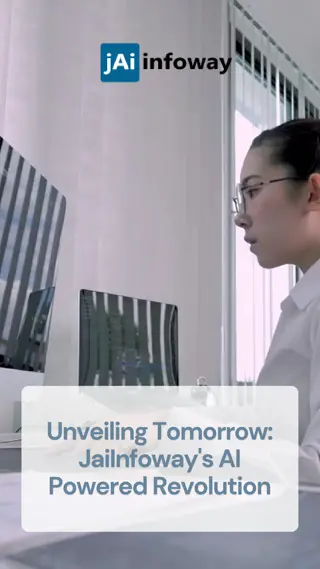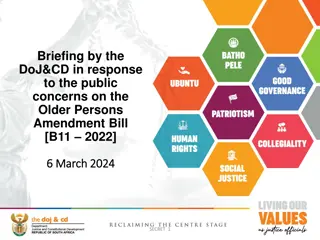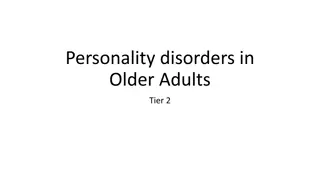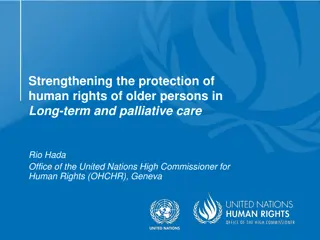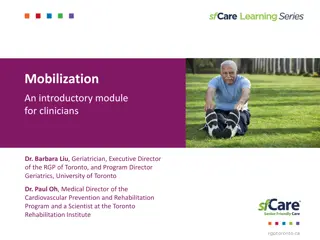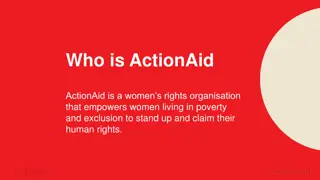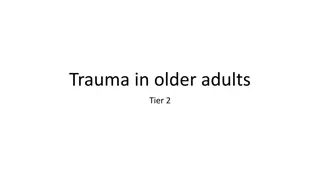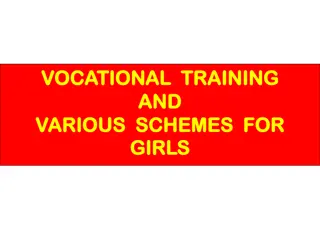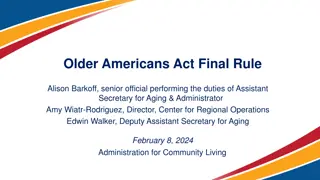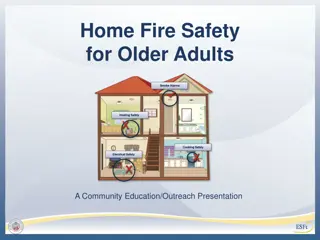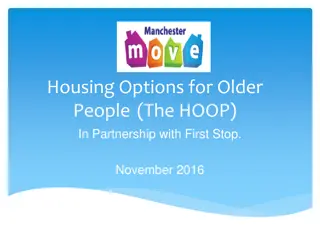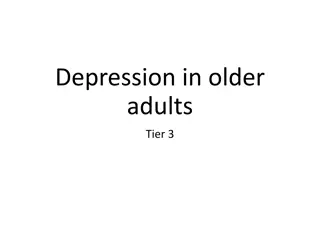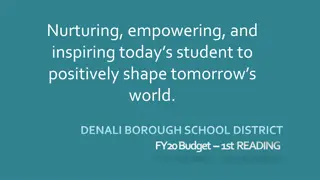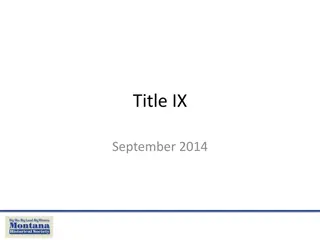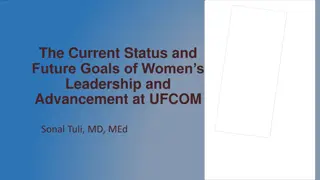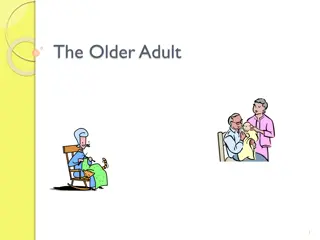Empowering Older Women for a Better Tomorrow
Association for Women's Career Development in Hungary, with UN-ECOSOC consultative status, focuses on advocating for older women's rights and empowerment. Their work includes promoting lifelong learning, cooperation of generations, and active aging. They have actively participated in events like CSW64 at the UN, emphasizing the importance of dignity and independence for older women. The organization highlights the value of knowledge transfer between generations for a smarter, more balanced society.
Download Presentation

Please find below an Image/Link to download the presentation.
The content on the website is provided AS IS for your information and personal use only. It may not be sold, licensed, or shared on other websites without obtaining consent from the author. Download presentation by click this link. If you encounter any issues during the download, it is possible that the publisher has removed the file from their server.
E N D
Presentation Transcript
BACKGROUND The Association for Women s Career Development in Hungary has been participating in the work of the UN / ECOSOC as the first Hungarian NGO with "UN-ECOSOC special consultative status" since 2009. Thanks to our Women s Career for a Lifetime project, and in recognition of our work in this area, we have been invited to work together at the United Nations with an international team of experts working for older women s advocacy and empowerment. Why older women? With the participation of our HR, PR and Lifelong learning experts, we have been working together for 10 years on drawing attention to the special group of older women, who represent the largest group within the world s population and it is growing fast. What is our contribution? We have been contributing to the joint international work in the interest of older women with our expertise and experience in the areas of lifelong learning, labor market issues, the situation of the sandwich generation , cooperation of generations and older women in the media since 2009. 2
CSW64 IN NEW YORK IN MARCH 2020 In recent years we have regularly participated in the world biggest women s event held at the United Nations in March every year, the CSW (Commission on Status of Women). Thanks to our cooperation with INPEA, we have received the opportunity for the fourth time this year to organize a parallel event together. The CSW64, to be held in March this year was expected to be a larger-than-usual event due to celebrating 25th anniversary of the Beijing World Conference on Women and its Action Plan. We were pleased and prepared to be part of this great event as speakers at the parallel event entitled Dignity and Independence of Older Women: Has Beijing+25 Implemented Policies to Ensure That? We planned to speak about Cooperation of Generations in the Family and at the Workplace. 3
CSW64 and Generation Equality By this we mean the involvement not only of young people but of all generations. Since our foundation it is part of our strategy that different generations (men and women) work together. Engaging them and taking their views and opinions into consideration is an essential part of our decision making and the effectiveness of our activities. Generations and knowledge transfer A "smarter life" requires making better decisions, and these decisions are based on knowledge, experience, and a sense of power, which are acquired as we age. This process is called lifelong learning, and it is based on life experience and "common sense". If we are to live better lives, we must therefore foster cooperation and communication with older people, who are always happy to pass on their knowledge and life experience to the younger generations as long as they are with us. We must therefore act quickly, or their knowledge and wisdom will be lost to us, and the process of knowledge transfer will be severed forever. 4
Demographic challenges The proportion of older people in the population is growing. They should not be seen as a burden, but as a valuable resource in society, the economy and the family. The message must reach everyone involved. A change of attitude is essential in society, in the family, in companies and especially by the related individuals including the today s and future 60s, 70s and 80a. Active aging generations in new roles in the family and in the workplace Knowledge transfer mutual Intergenerational cooperation a partnership where human and professional values complement each other Lifelong learning generations mutually inspire and motivate each other Work / life balance is important for all ages 5
The not understanding between generations can result in Ageism The characteristics and interests of the generations are becoming more and more diverse, becoming more and more distant from each other, which raises the danger of conflict and especially ageism. Fortunately, in the traditional family, which still exists in many countries, including our region the V4 countries, different generations are in contact and help each other. It is natural for children and young people to know, appreciate and love their grandparents. Young people who have good experiences with their grandparents, are more accepting of the older people, can better communicate with them, also at the workplace. A good cooperation of generations can give a sense of stability and security both for the young and the older people, too. 6
My advices Older people need to take the initiative to work together with younger people It is important to raise awareness of the existence, characteristics, diversity, strengths and weaknesses of generations and the mutual benefit of cooperation The Family can be a Solution Hungarian Good Practices relating cooperation of generations in the Family: N k 40 The Women 40 (Hungarian: N k 40) program makes it possible for women who have worked 40 years to retire in order to get more time to spend with grandchildren or with their own old parents. Nagysz l i GYED The concept of the grandparents child-care fee, is that the working parent can transfer their own right to the fee (GYED) to a grandparent after they agree upon this, after which the grandparent can care for the child while the parents are working. 7
OUR PROFESSIONAL NETWORK: UN: ILO, WHO, FAO, UNECE, UNESCO EU: EP: Committee on Women's Rights and Gender Equality AGE Platform Europe, OWN Europe and other European NGOs, US NGOs In Hungary: National Assembly Committee on Employment and Labour, National Council on Ageing, Ministries, Local Governments, Hungarian Academy of Sciences, Hungarian Labor Inspectorate, EBH - Equal Treatment Authority, National Institute for Food and Nutrition Science, Hungarian Central Statistical Office (HCSO) Demographic Research Institute, Gerontology Science Coordination Center, Faculty of Health, University of Debrecen, Hungarian Scientific Association of Rural Health, Crime Prevention Department of the Hungarian National Police, Magyar V r skereszt (Hungarian Red Cross). Embassies 8
Special Thanks to INPEA (International Network for the Prevention of Elder Abuse) for their long year professional cooperation We would like to thank herewith to the Hungarian Ministry of Human Capacities for sponsoring the participation of AWCDH in the CSW64 9
GET IN TOUCH WITH: Mrs. Andrea Ferenczi President of the Association for Women's Career Development in Hungary Ugron G bor u. 28. H-1118 Budapest, Hungary Phone: +36 1 319 5245 Mobile: +36 30 982 7093 Fax: +36 1 319 2017 E-mail: ferenczi@t-online.hu www.womenscareer.org International Organizations: National Representative of INPEA (International Network for the Prevention of Elder Abuse) in Hungary, Member of the NGO Committee on Ageing, Geneva, Member of the Employment and Active Ageing Expert Group of AGE Platform Europe, Board member of the Older Women s Network, Europe. 10








